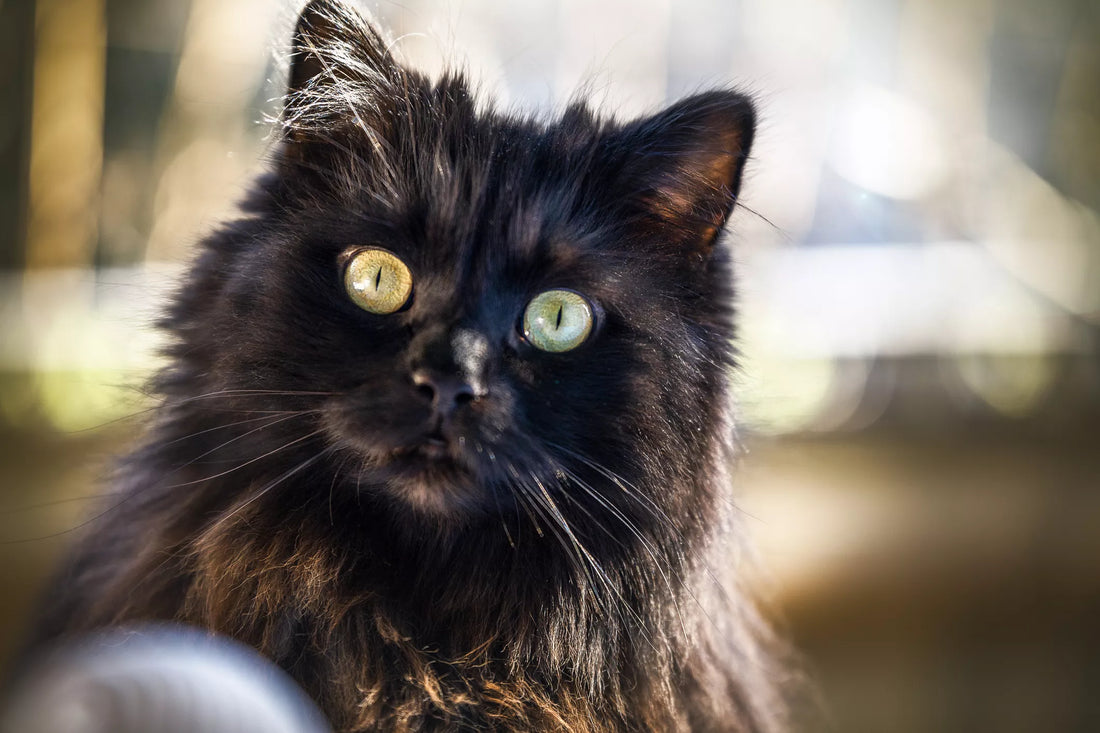
9 Surprising Facts About Black Cats! 🐈⬛
Share
When you see a black cat, you might think it's just an ordinary feline. However, black cats are anything but ordinary! From their unique genetics to their fascinating history, these sleek beauties have some surprising traits. Let's dive into nine amazing facts about black cats that will make you appreciate them even more.
1. Black Cats Can Appear in 22 Different Breeds
Black cats aren't tied to one specific breed. In fact, there are 22 cat breeds worldwide where black-coated felines can be found. Some common ones include the Persian, Sphynx, British Shorthair, and Scottish Fold. The secret behind their black fur? Genetics! The black color results from a dominant gene, so if one parent in a litter is black, there's a high chance some kittens will inherit that trait.
2. The Bombay Cat: Always Black
While many breeds can have black cats, the Bombay cat is the only one where every cat is black. Bred in the 1950s to resemble a mini-panther, Bombay cats are known for their sleek coats and striking eyes. But they're more than just a pretty face—they’re also affectionate, intelligent, and loyal, often forming dog-like bonds with their owners.
3. Black Cats Can Change Color
Did you know black cats can change color? When exposed to sunlight for long periods, their fur may take on a brown or reddish tint due to ultraviolet rays. Diet can also play a role. A deficiency in the amino acid tyrosine, essential for melanin production, can cause their fur to fade. But don’t worry—adding more protein to their diet can help restore their black coat.
4. Their Eyes Are Often Yellow or Green
Black cats are known for their mesmerizing eyes, which are often a vibrant yellow or green. This is due to the high melanin levels in their bodies—the same pigment responsible for their dark fur also influences their eye color. Some black cats can even have blue eyes, although this is rarer and usually linked to partial albinism.
5. They May Be More Resistant to Diseases
One fascinating discovery is that black cats might have a genetic advantage when it comes to resisting certain diseases. Studies suggest that the same gene responsible for their black fur could provide resistance to infections like feline AIDS. While research is ongoing, this could mean black cats are hardier than their counterparts.
6. The Black Coat Is Linked to a Dominant Gene
As mentioned earlier, black cats owe their color to a dominant gene. This gene controls the production of eumelanin, the pigment responsible for black, brown, or gray fur. When two black-coated cats mate, the likelihood of their kittens being born black increases significantly.
7. The World’s Richest Cat Was Black
Meet Blackie, the wealthiest cat in history! In 1988, a British millionaire left his black cat, Blackie, an inheritance of $12.5 million. While Blackie became famous for this windfall, much of the money was also donated to animal charities, helping improve the lives of other felines.
8. The Myth About Black Cats and Halloween
Despite the myths, black cats are not used in Halloween rituals. National Geographic debunked this myth in 2007, finding no evidence of black cats being sacrificed during Halloween. In reality, these cats are just as loving and loyal as any other feline, with no ties to dark magic or rituals.
9. They Make Wonderful Pets
Black cats are often overlooked in shelters due to superstition, but they make excellent companions. They are affectionate, loyal, and have unique personalities. Their striking appearance, with a shiny coat and vibrant eyes, adds to their charm. Adopting a black cat not only gives them a loving home but also brings a loyal friend into your life.
Now that you know these fascinating facts, why not consider adopting a black cat? They have so much love to give and deserve a home just as much as any other feline. And if you're curious about leaving your cat alone at home, check out our next post for tips on avoiding common mistakes that could put your furry friend at risk.
